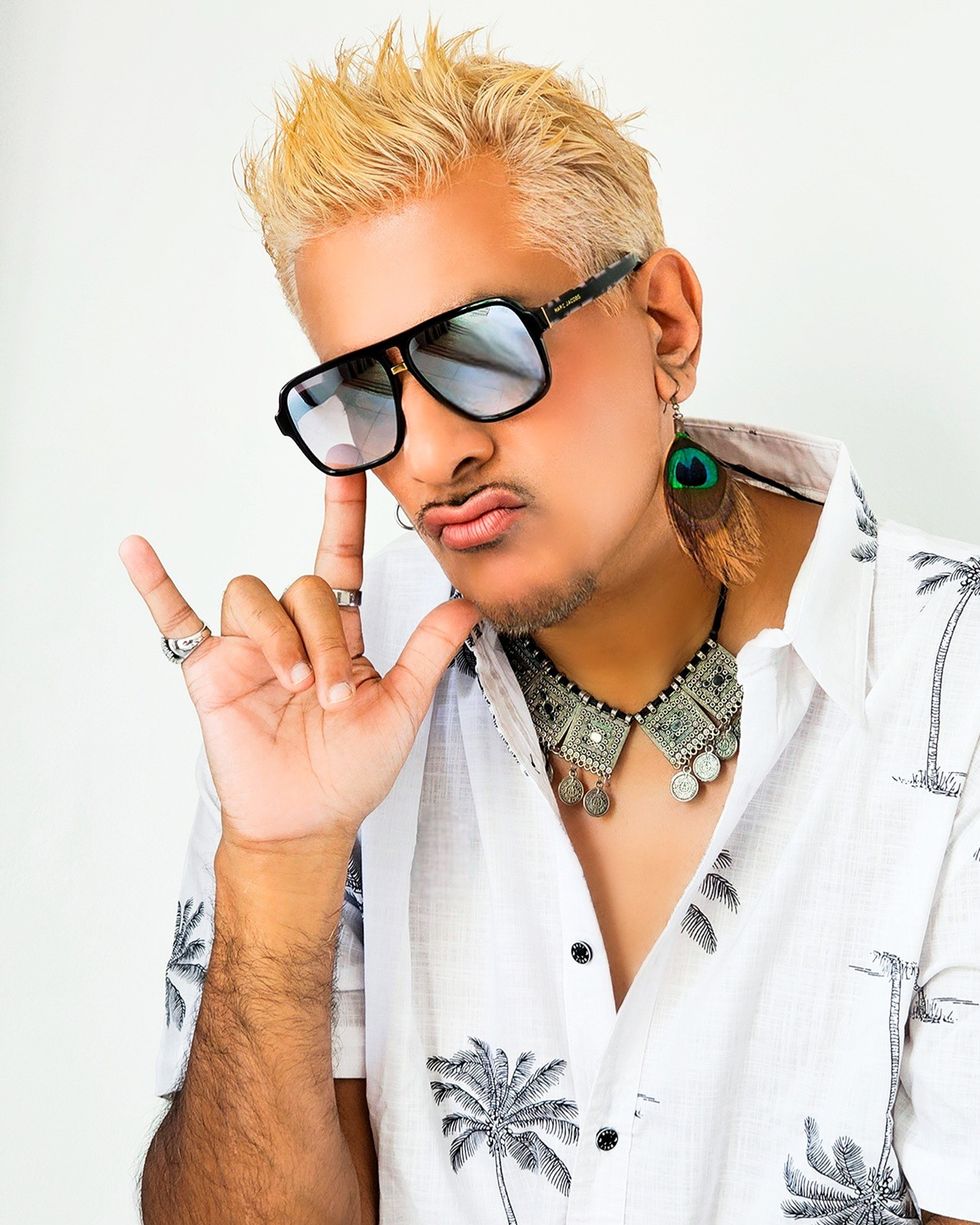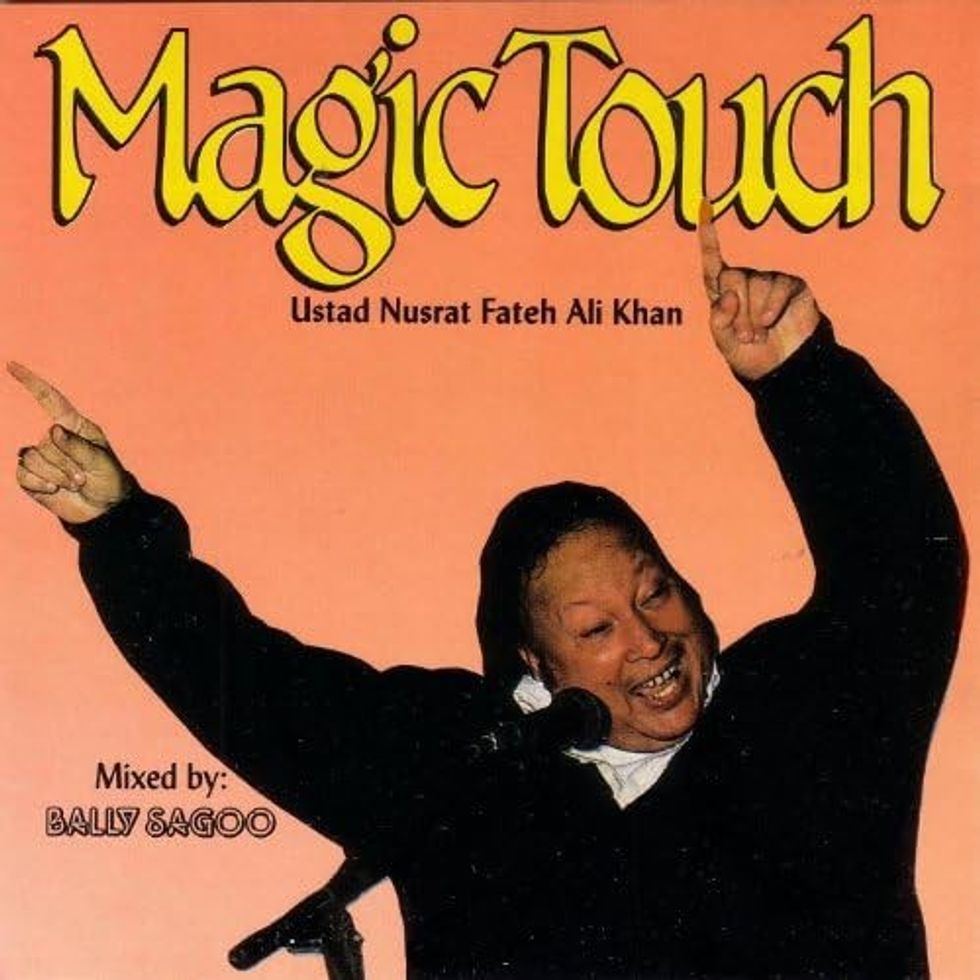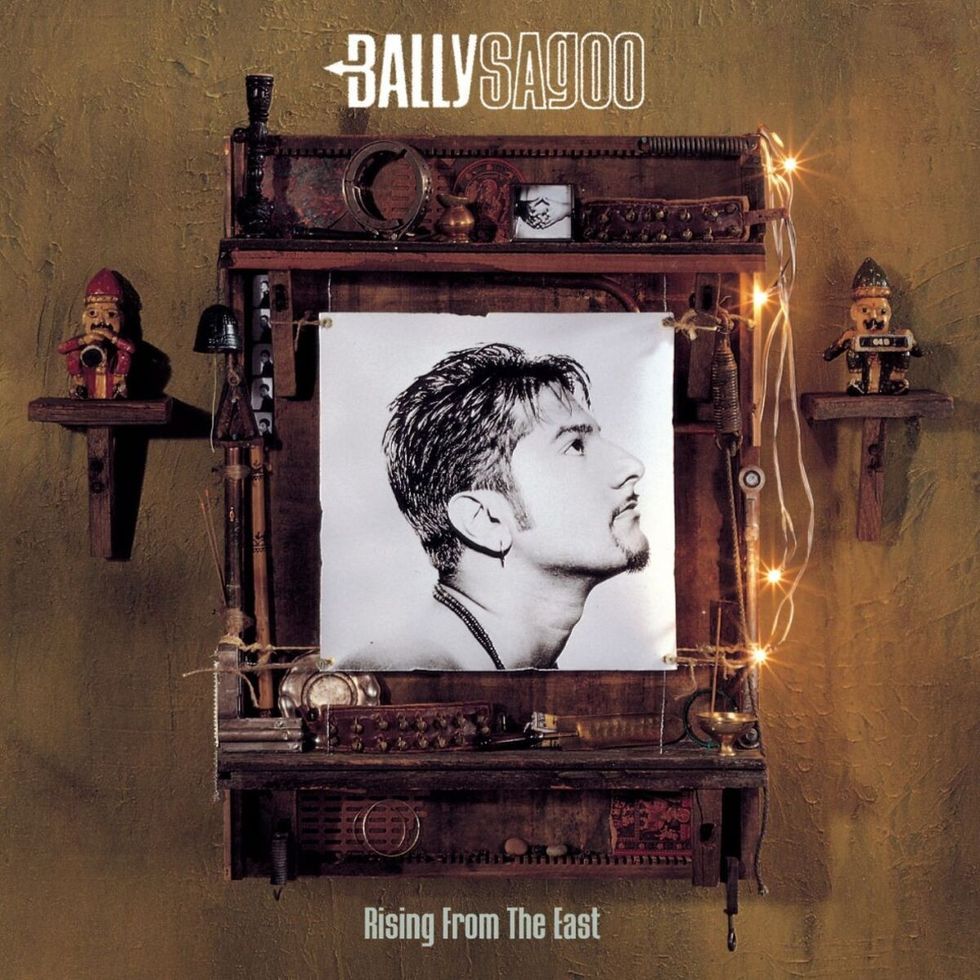He may be living the dream in Bali these days, but Bally Sagoo remains proudly British at heart.
During a recent visit to his home city of Birmingham, the trailblazing music producer sat down for a wide-ranging interview with Eastern Eye that was thoughtful, nostalgic and inspirational.
From defining British Asian culture to popularising fusion music, crossing cultural frontiers and delivering blockbuster hits, the game-changer inspired an entire generation with his achievements. Since starting in the late 1980s, he has collaborated with iconic artists and created a blueprint for commercial fusion music that still influences talent around the world.
In the free-flowing conversation, he reflected on his genre-defying journey, the lasting legacy of his biggest tracks, why Top of the Pops was a dream come true, and what it was really like to collaborate with legends such as Nusrat Fateh Ali Khan and Amitabh Bachchan. He also opened up about life in Bali, his timeless music – and how he is still finding inspiration after decades of success.

You still look young, while the rest of us are ageing. What’s your secret?
(Laughs) I do not know, Asjad. I think it is just living a good life in southeast Asia, eating well and being happy.
How did you end up in Bali?
Well, I have been going to southeast Asia for quite some time and love that part of the world. I am travelling a lot, finding myself – and love living out there in Bali. I am having a great time. I love my seafood, I love being near the sea. Who would not want to live there?
How would you sum up your spectacular music journey?
It has been amazing. I am so grateful to have fans around the world who have supported me for so long. It is a blessing to have touched so many people with my tracks. I have been doing this my whole life – nearly four decades now. My first records came out in the late 1980s. I have been put on this planet to do this. This is my life. Music is my life.
How much does it mean to you that your tracks from decades ago still sound so fresh?
That means everything. The amount of people I meet globally – even in remote places like small islands – say the same thing. They say it sounds fresh. Magic Touch was nearly 35 years ago. Gur Nalon Ishq Mitha was 1991. Aaja Nachle was 1998. Even when I look back, I think, how many years ago was that? But when I listen to them, they really do sound quite current – and I am proud of that.
Is there one song that’s closest to your heart?
It is impossible to choose – it is like picking a family member or child. There are so many. Ones that stand out include Dil Cheez, Aaja Nachle and Chura Liya. Then Gur Nalon Ishq Mitha – and many more! So, it is difficult to pick one.

You broke ground for a generation of artists. How does that feel?
It is great that I was able to open doors and break barriers. Music was something I was doing as a teenager at school growing up in Birmingham. It has not been easy. One thing that really upsets me is when people ask, how does it feel to have made it? I am like, there is no such thing. I am still on this journey. Constantly moving – and that is also something people can learn from.
Tell us more about that.
I put years into my music – even months into just one song. There is so much that goes into it, and some people do not realise. Today, people are in a rush – they want things instantly. That is when it does not work. Great music stands the test of time – and that takes hard work. That is why people hear all the little details in my tracks.
You helped make Birmingham the commercial capital of South Asian music – and remain a proud Brummie despite travelling the globe.
Birmingham has always been a big melting pot. It is an important part of the world that broke music and created new styles. I am living proof – I started here. I was born in India but came here when I was six months old, so I have been raised in Birmingham my entire life. All my influences came from here.
You helped put the music – and vibrant city – on the global map.
Not just Birmingham, but the UK in general. We should be proud that we catapulted our Asian roots – whether Indian, Pakistani or otherwise – to the world stage. From Sufi to bhangra, we changed the whole scene. And we did it without social media. We had to physically go out and push our music – there was no internet to help us.
Does it sadden you that later generations did not make full use of the platform pioneers like you created – and that other countries overtook us?
That is part of moving forward. The world woke up when they heard our music and wanted to be part of it. More youngsters became proud of their culture and thought, let us make music that reflects the best of both worlds. There is now great music coming from all over – western countries, India, Pakistan. Social media has helped that. But it all started with us in the UK – and we should be proud of that.
You have had many highlights. What was the most memorable?
There is not just one. Touring with Michael Jackson, of course. But Top of the Pops was the icing on the cake – because I grew up watching it. I told my parents I would be on there one day. (Laughs) They would smack me and tell me to get back to studying. No one thought it would happen. That was a breakthrough moment. Working with superstars like Nusrat Fateh Ali Khan was also unforgettable.
What made the late qawwali legend Nusrat Fateh Ali Khan so special?
He was the best vocalist I ever worked with. Everything was special about him. He had an aura. His voice was unbelievable. He could record a track in one take. There were no effects or digital tricks – unlike a lot of singers today. That is why Magic Touch will always be special. I recorded it in 1991 – very early in my career.

You were thrown in at the deep end but produced one of the greatest albums of all time. Did you expect that impact?
I thought it would be great for the UK scene – but I had no idea it would be so popular worldwide, especially in India and Pakistan. Bollywood went ballistic when they heard it. They all wanted to work with Nusrat – and with this sound.
You also made a superhit album with Amitabh Bachchan – one that younger fans may not know about.
Yes – he approached me to do an album. This was in 1996. I cheekily said, come and record it in my Birmingham studio – and he did. We made Aby Baby here. He was not the best vocalist, but he was a legend and the number one movie star. It was his idea to include his father’s poetry. I wanted to do Kabhi Kabhie – one of my favourites.
Do you have any unfulfilled ambitions?
I still have dreams like anyone else. I am more laidback now – I do not need to race anyone or prove anything. I am enjoying the journey and am grateful for where I am. I meet people of all ages – from young listeners who discovered my music long after it was made, to those who grew up with it. I have always made different styles of music.
That variety has defined your music.
I always made music for all kinds of people. I never wanted to just stick to bhangra because it was popular. I tried to make something for every listener. (Laughs) I never rinsed the same beat like some others. Every album had something different – and that continues.
What does music mean to you today?
What it has always meant – it is my life. I love listening to music from around the world. Music has no language or barrier – it should be for everyone. That is what I believe.
What inspires you creatively?
The same as always – listening carefully to what is happening globally. Living abroad now, I come across instruments I have never heard before – and my first thought is, how can I get that sound into my studio? I am exploring Japanese, Korean, Chinese instruments – some I cannot even pronounce. I love fusing different musicians and singers. I have always done that.




